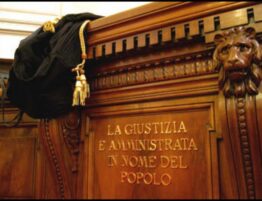
The Firm has successfully represented a client before the Regional Administrative Court of Lombardy – Milan in the challenge of the award and of all other acts connected to a procurement of a public corporation based on the lowest price principle. In the present case, the lex specialis of the procurement procedure provided the need for the participants to prove they had a technical and economic requirement for the purpose of participation, namely having provided supplies of products analogous to the ones which were the subject matter of the procedure for a certain (high) amount, in the three years previous to the tender.
The client ranked second in the bidders’ list, while the contract was awarded to a different company, which however had provided – as evidence of the above mentioned technical and economic requirements- documents showing that, during the previous three years, it had not supplied products which could actually be defined as being analogous to the ones of the procurement or, at least, had not proven, through appropriate documentation, that it met the requirement also for the purposes of actually having reached the total amount required by the technical specification for participation. For this reason, the award was challenged, together with all the acts connected to it. Both the contracting party and the successful tenderer argued that the analogy criterion had to be interpreted broadly, in light of the general principle of the favor partecipationis in public procurement procedures and that, in any case, the judgment on whether or not the requirement of the analogy of the documented products with those of the procurement had been met, should be left to the contracting Authority’s discretionality. Furthermore, the counter-parts repeatedly empha-sized that the concept of “analogy” could not be confused with the one of “identity” and had to be interpreted as a mere similarity between the compared products. The Administrative Court of Milan, by means of Judgment of 3 November 2014, granted the application, also quoting the results of the verification conducted by a qualified technical expert on the evidence provided by the successful tenderer. The verification came to the conclusion that the successful tenderer did indeed not demonstrate that it met the requirement of the procurement specifications, since it proved the supply of certain products, which were analogous to those of the procurement, however, not for the required amount, because many of the documented products could not be treated as equivalent to them based on functionality, use and technical construction.
The Judges have, therefore, pointed out that if, during a public procurement, the contracting authority re-quires the bidders to document the past performance of services which are not identical to, but only analogous to those which are the subject-matter of the procurement, it does so to ascertain the bidders’ specific ability to perform the services of the procurement. Therefore, the request comes from the need to acquire knowledge about the company’s previous activity, since gained past experiences are a significant index of the company’s ability to perform the services requested through the procurement procedure, but “those experiences must be sufficiently similar, at least in their essential aspects and in those identifying the demand that the contracting authority aims at meeting through the procurement, with the result that the concept of analogy should not be extended to the extent that it comprehends all activities that are not similar to those covered by the contract” (Consiglio di Stato III Section, Judgment 25-06-2013, n. 3437). The TAR has, therefore, granted the application, ordering the compensation of the so called curricular damage and of the loss of profit in relation to the contract.
(Bologna Office – Andrea Giardini – +39(0)51 2750020)








